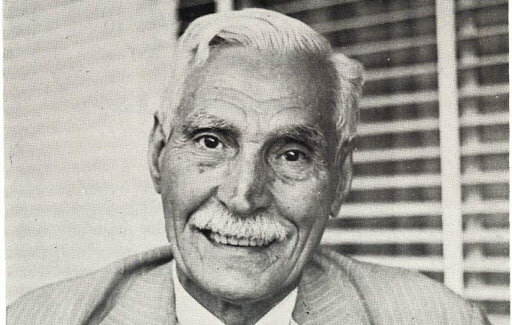Teacher of ‘silent flowers’: in memory of Baghcheban

TEHRAN – November 25 is the anniversary of the death of Mirza Jabbar Asgarzadeh, a compassionate teacher who was the founder of the first school for deaf children.
Known as Baghcheban (literally meaning gardener in Persian), he was really the teacher of ‘silent flowers’.
He is famed for establishing the first modern kindergarten in Iran and the first school for deaf children in the city of Tabriz in 1924. He was also the inventor of the Persian language cued speech.
He was born in Urmia, northwestern West Azarbaijan province, but in early childhood, he traveled to Yerevan, Armenia. The first kindergarten he established was called “Baghche-ye Atfal” which means “Children’s Garden”. That is why he was given the nickname Baghcheban which literally means “gardener” in the Persian language.
Few people know of his life’s ups and downs. He left school as a child due to financial problems and worked in architecture and confectionery with his father, but because he loved writing, at the same time, he wrote for satirical magazines and gradually became the editor of the magazine.
In 1928 he wrote the first Iranian children's book in Persian. The book was called baba barfi which means “father snow” in Persian.
He used to say that if a primary and secondary school teacher is called a "teacher", the kindergarten teacher is a kind of guardian of flowers, so he is a gardener, and he changed his family name from Asgarzadeh to Baghcheban.
Baghcheban was critical of the education system in Iran and believed that new methods should be used.
He considered one of the reasons for the low quality of literacy to be the lack of preparation for pre-school and said that for proper education, one should use different methods of playing, role play, poetry, song, and storytelling.
In 1924, he established the first school for the deaf in Tehran.
His valuable works in the field of literature include childhood life; Alphabet teaching instruction; Self-taught alphabet for the elderly; secrets of education; Baghcheban Alphabet; method of teaching the deaf; and etc.
The translation of Khayyam's quatrains into the local Azeri language is unique among other books and works of him, because the translation of Khayyam's quatrains into Turkish, which is also poetic as the original quatrain, is unprecedented and amazing in its kind.
Finally, the teacher of the silent flowers of Iran, after a lifetime of efforts to promote Iranian culture, passed away on November 25, 1966, at the age of 81.
But his name always remains in the minds and souls of the children of Iran, especially those who could not read and write without him.
FB/MG
